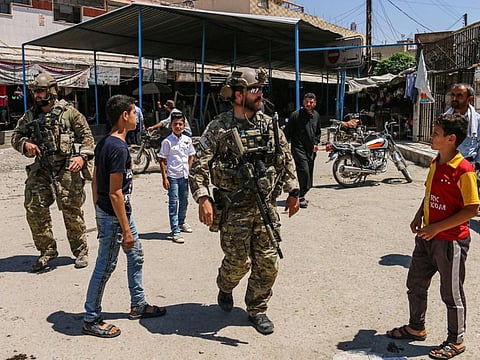US tries to stop Turkish invasion of northeastern Syria
Officials privy to the subject say the situation has turned volatile

Washington: The Trump administration has launched a last-ditch effort to head off a Turkish invasion of northeastern Syria that it expects will come within the next two weeks.
With tens of thousands of Turkish troops massed near the border, a high-level Defense Department delegation plans to present what U.S. officials describe as a final offer to address Turkey’s concerns at a meeting Monday in Ankara.
The meeting marks the climax of a years-long dispute between the two NATO allies over U.S. support for Syrian Kurdish fighters who have led the ground war against Daesh, but whom Turkey considers a terrorist threat to its own security. Kurdish-led victories against the militant group have effectively left them in control of much of the border area.
Failure of the U.S. effort could throw the war-devastated region into even deeper turmoil, endangering efforts to rout Daesh remnants and President Donald Trump’s determination to withdraw U.S. troops from Syria.
The U.S. proposal includes a joint U.S.-Turkish military operation to secure a strip south of the Syria-Turkey border that would be about 9 miles deep and 87 miles long from which the Kurdish fighters would be withdrawn.
The U.S. and Turkish militaries would destroy Kurdish fortifications and then jointly patrol the area, located in the middle third of the northeastern border stretching between the Euphrates River and Iraq. The other two-thirds would be cleared later.
Turkey has already rejected those parameters, insisting on a “safe zone” at least 20 miles deep and expressing a preference to control it alone. The Turkish government is also looking to establish areas that would allow the safe return of some of the more than 3.6 million Syrian refugees currently living in Turkey.
It is not the first time Turkey has threatened an invasion. But this time, the threat is real and imminent, according to U.S., Turkish, Kurdish and European officials, some of whom spoke on the condition of anonymity about the volatile situation.
Sign up for the Daily Briefing
Get the latest news and updates straight to your inbox



